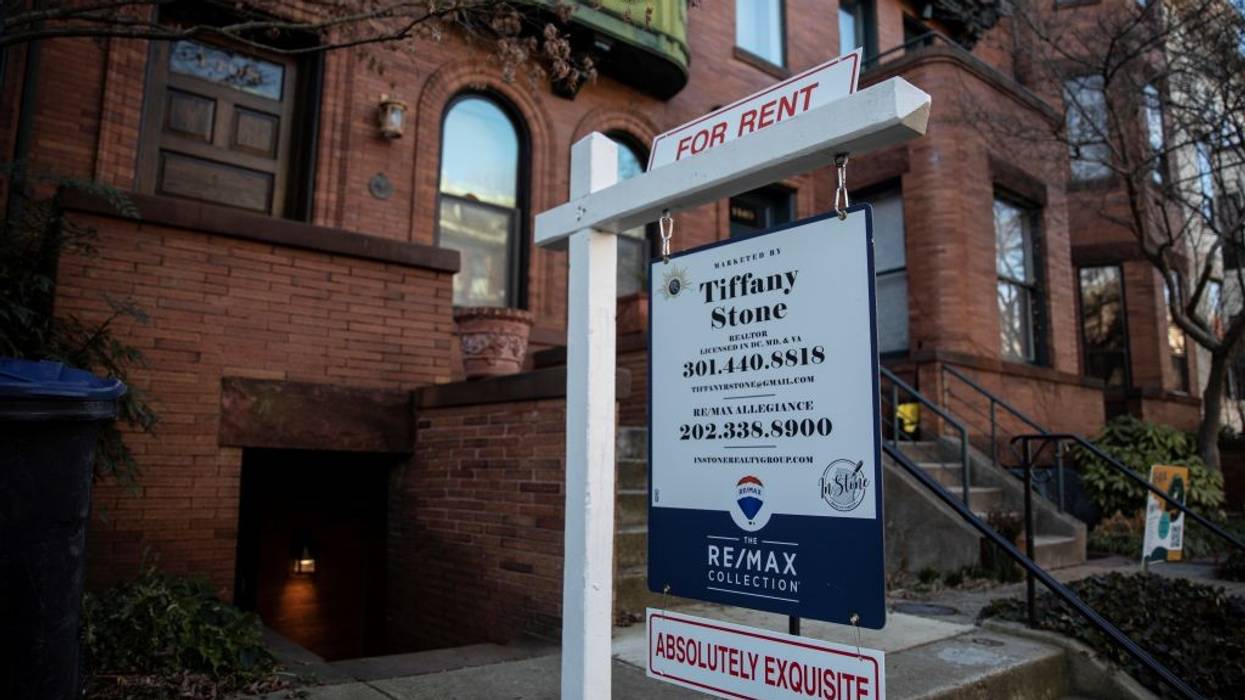"The deficit-financed tax cuts would also increase interest rates, making housing less affordable," ATF added. "To the extent the tax cuts are not added to the deficit, housing programs are among the important public services being targeted for significant cuts to fund tax giveaways for billionaires and their wealthy donors."
"They are paving the way for more predatory landlords to jack up rent."
ATF's assertion is supported by a
report published in February by the Economic Policy Institute finding that "large, deficit-financed tax cuts would put upward pressure on inflation and interest rates, slowing growth and causing pain to households," including by making borrowing for a home more expensive.
ATF noted that extending the TCJA's weakened low-income housing tax credit (LIHTC) could result in 235,000 fewer affordable housing units over 10 years.
"Trump's tax scam reduced the financial incentive for corporations—the largest LIHTC investors—to make equity investments in the tax credits by slashing the corporate tax rate to 21%, and adopting a stingier measure of inflation," the group said.
"One of the most regressive provisions in the 2017 Trump-GOP tax law is the so-called 'opportunity zone' tax break," ATF contended. "While proponents claimed it would encourage investment in low-income neighborhoods, it has instead been ruthlessly
exploited by wealthy real estate investors."
"In fact, this program has failed to deliver the promised economic opportunity to underserved communities, instead turning many of these neighborhoods into what can more accurately be described as exploitation zones," the group added.
The Lever's Luke Goldstein and Katya Schwenk reported Tuesday that the reconciliation package's proposed restrictions on state governments passing new regulations on artificial intelligence technology "could kill crackdowns on real estate management company RealPage for raising rents and contributing to the country's housing crisis."
RealPage is accused of price gouging renters via AI-powered surveillance pricing and automated insurance denials and management systems.
"Not only are House Republicans giving their billionaire donors and large corporations a massive tax handout, they are giving RealPage and bad actors like them a free pass to rip off working families," Lindsay Owens, executive director of the economic justice group Groundwork Collaborative,
said Wednesday.
"They are paving the way for more predatory landlords to jack up rent, more apps to drive down gig worker wages, and more retailers to hike prices on consumers," Owens added. "The GOP tax bill tells you everything you need to know about the Republican Party's priorities and how unserious they are about lowering costs for working families."
More than a dozen states have
joined a class action lawsuit accusing RealPage of using AI to artificially inflate housing prices across the nation.
Also on Thursday, more than 30 housing, consumer, and civil rights groups
warned that the Trump administration's deep cuts to federal agencies and programs—spearheaded by the so-called Department of Government Efficiency—"are worsening the nation's housing crisis."
"Our families, neighbors, and communities deserve better than these untenable and unconscionable proposals."
"The Trump administration promised to address the high cost of housing, but so far has proposed policies that will increase the cost of rent, shred the nation's housing safety net, and push more people into homelessness," National Low Income Housing Coalition interim president and CEO Renee Willis said in a statement.
"At a time when more people than ever are struggling to afford the cost of rent and a record number of people are experiencing homelessness, rolling back fair housing protections and cutting funding for rental assistance, homelessness services, and affordable housing development—and gutting the workforce responsible for administering these programs—will only create more hardship," Willis added. "Our families, neighbors, and communities deserve better than these untenable and unconscionable proposals."
In a wider critique of Trump's policy proposals, U.S. Sen. Bernie Sanders (I-Vt.) said Thursday on social media: "Wages are stagnant. Housing costs are soaring."
"Many young people will never be able to afford their own homes, but Trump wants to increase the bloated military budget by $150 billion," Sanders added. "WRONG. That money should go toward building the affordable housing that we desperately need."




